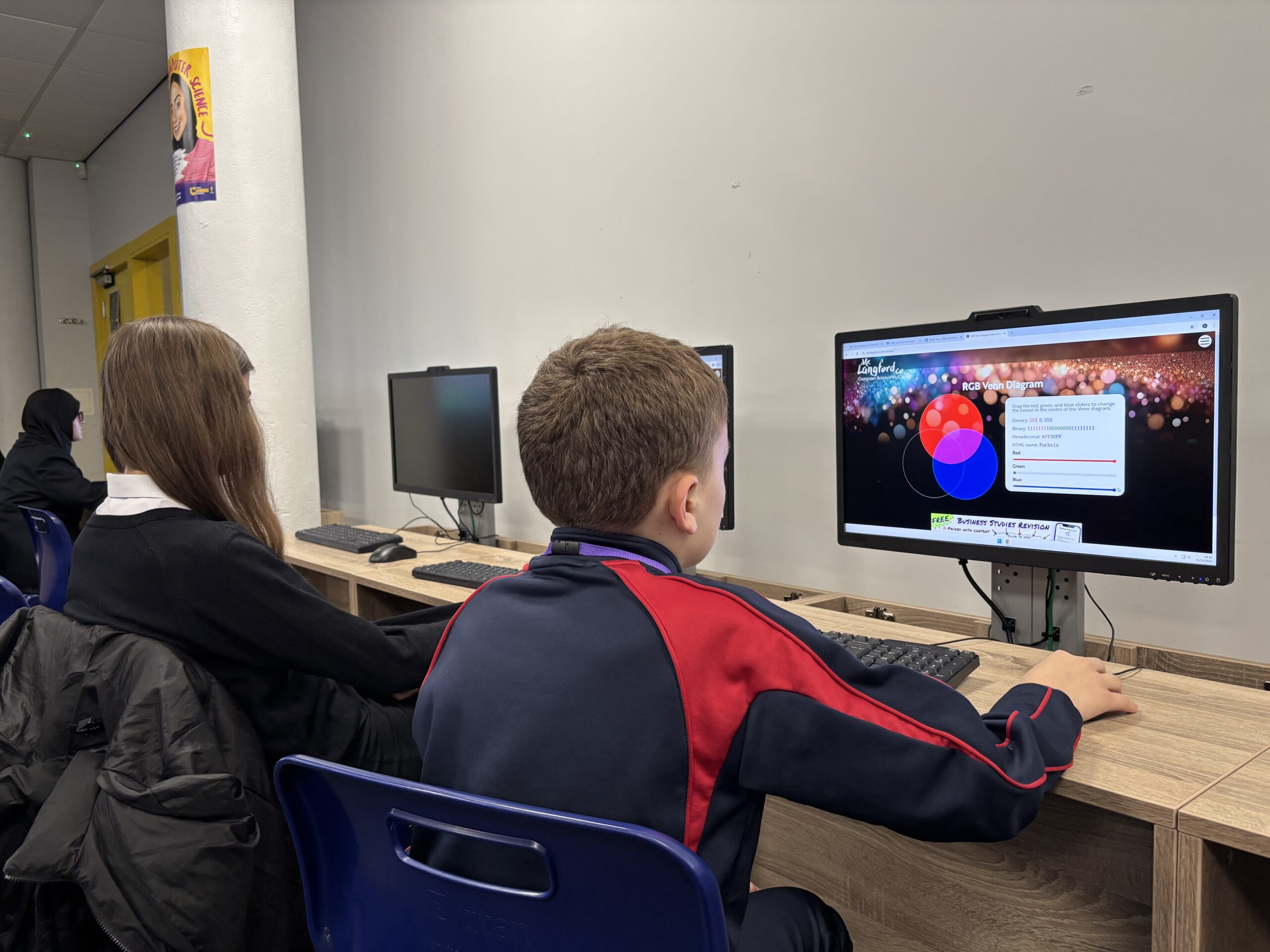There’s an old Christmas song that says “it’s the most wonderful time of the year”. In many ways this is true, after all, we are getting to celebrate the most amazing gift humanity has ever been given, Jesus Christ. However, for many in our communities and in our world, Christmas can be a very difficult, challenging and sad time of the year due to the difficult circumstances they find themselves in. To help with this, and to truly live out the mission of our school, this Advent, we at St Edmund’s will be working extra hard to support as many local charities as we can, through a variety of fundraising initiatives.
Wolves Foundation Shoebox Appeal
The shoebox appeal is run by the Wolves Foundation every December, collecting new essential items and toys to be distributed to families in need. Local organisations they support include; The Good Shepherd, the Women & Families Resource Centre, the Haven, Jericho House and Strengthening Families Hubs.
Fr Hudson’s Caritas – Reverse Advent Calendar
If you’ve not heard of them before, a “reverse” Advent Calendar is the opposite of those filled with treats that we see for sale in the shops. Instead of taking something for yourself out of the calendar, the reverse calendar encourages people to put something in. Fr Hudson’s Caritas, the Social Action branch of the Archdiocese of Birmingham, are asking Catholic school students and their families to donate toiletries, which will be distributed to the homeless, as well as refugees and asylum seekers.
Christmas Hampers
We are very proud of the tradition in our school of reaching out to our most vulnerable families. We have done this at the end of each term for many years now, but since the beginning of the “St Ed’s Larder,” we have been able to extend this support through the year. This year we hope to put together as many Christmas Hampers as we can to support our families, for whom Christmas will be a challenging time.
What Can You Do?
Please be as generous as you can with donations and contributions to our charities. The old saying that “every little bit helps” is absolutely true – it really does! Wishing you all a Happy and Holy Advent.
Rev



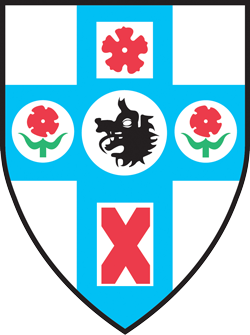
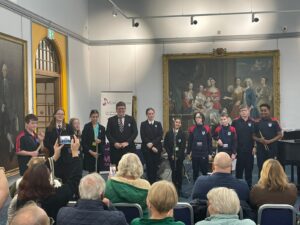
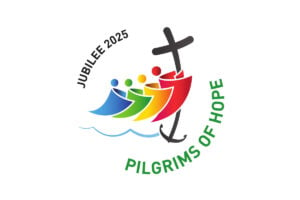



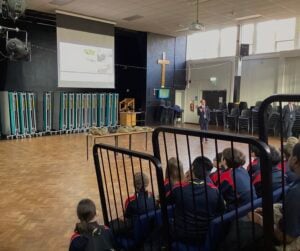

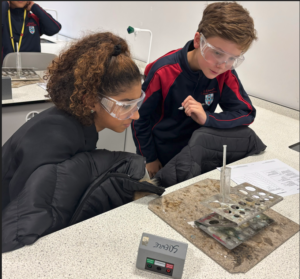










 By experimenting with different combinations of red, green, and blue, they’re discovering how computers use binary to create a wide range of colours.
By experimenting with different combinations of red, green, and blue, they’re discovering how computers use binary to create a wide range of colours.

